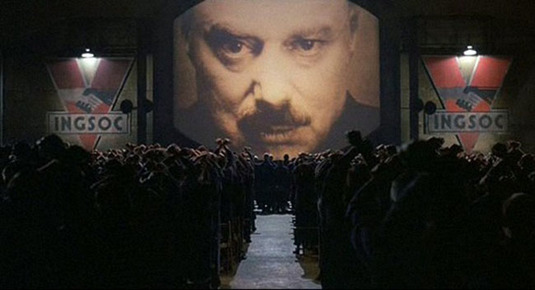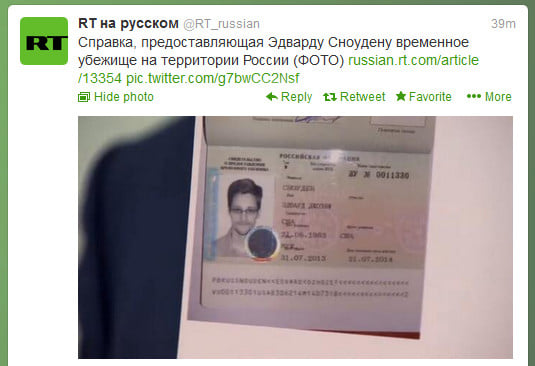This article is more than 1 year old
Snowden's Big Brother isn't as Orwellian as you'd think
Secrets & lies: Spies & GCHQ
Do we live in an Orwellian dystopia? No - at least, not yet

1984's Two Minute Hate: Don't apply it to GCHQ just yet
In an Orwellian world, Edward Snowden would never have made it to Hong Kong, and if he had, his stories would never have been heard by those living under the boot of Big Brother. However, without committing or planning acts of violence, he has been accused of treason against the country that employed him, through making public large quantities of information on the secret-ish work of the NSA, GCHQ and their other partner agencies.
Would they like him not to exist? Probably. Have they succeeded in erasing him? For those who haven’t glanced at the Guardian over the last year, quite the reverse.
For some security services, such as the East German Stasi or Orwell’s fictional Ministry of Truth, their aim was to track and assess every citizen. On the basis of the Snowden files, the NSA and GCHQ collect information on millions because this is the easiest way to ensure they have what they want on a few. That may break the spirit, if not the letter, of the law, and it is deeply uncomfortable and unconscionable to some.
But it is not Orwellian. In the Airstrip One (Britain) of Nineteen Eighty Four, the government tortures and murders its subjects while enforcing total control over the media and the historical record. Britain during the Second World War controlled its citizens tightly – as Orwell knew well, working at a censored BBC.
Since 1945, despite plenty of specific outrages against liberty, the British State largely hasn’t. As a rule, if you can say your country is Orwellian in anything above a whisper, then it probably isn’t.
From Russia with love

Fugitive: Edward Snowden sought temporary asylum in Russia
Edward Snowden is now in Russia, a country that is rather closer to Orwell's dystopian future than Britain or America. Some see this as evidence that he has been working for Russian intelligence. Edward Lucas, in his recent e-book The Snowden Operation doesn’t go that far but argues that he is a “useful idiot” – in the way that naïve left-wing intellectuals were useful to the Soviet Union – who has behaved recklessly rather than heroically.
Snowden has defended himself, in particular when he asked Vladimir Putin about surveillance in Russia on a TV call-in show, saying that it was useful to get the Russian president’s denial on the record so it can be challenged.
But there are more interesting questions than Snowden’s motivations and views, such as how to treat whistleblowers. Snowden decided he could not see an alternative to going to the media, and many whistleblowers within big organisations come to the same conclusion. Both the British and American governments should do much more to protect whistleblowing, essentially by guaranteeing that any manager standing in the way should be committing career suicide. Usually, it is the whistleblower who curtails their career, as all too many cases in Britain’s National Health Service demonstrate.
